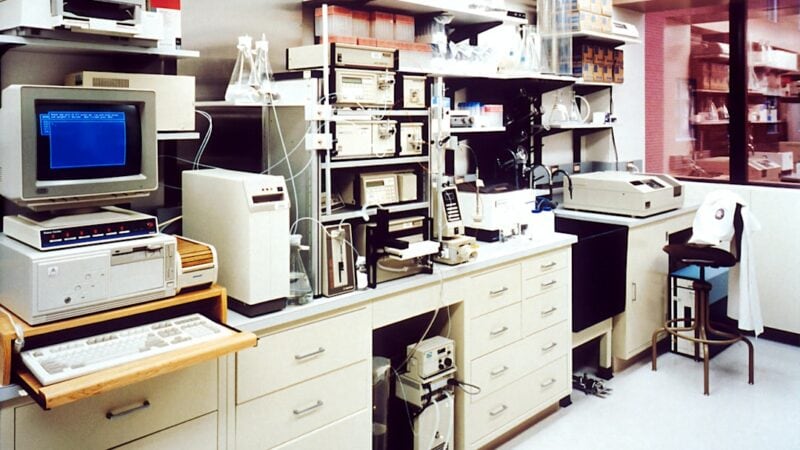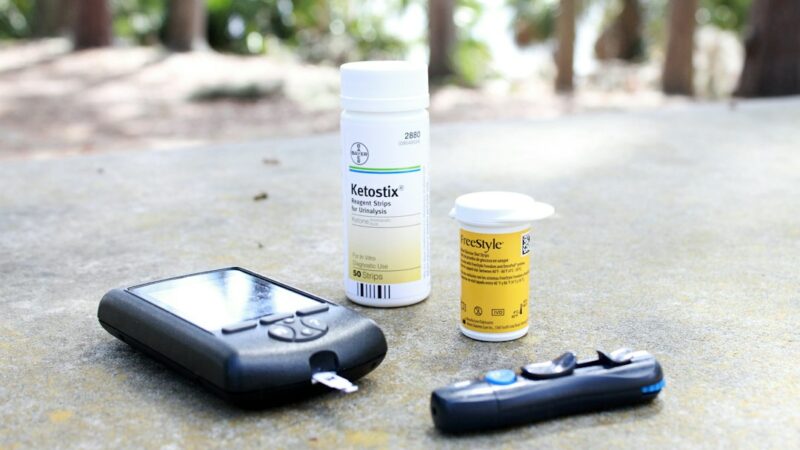Probiotics for Celiac Disease: Benefits and Side Effects

Celiac disease is an autoimmune disorder that affects the small intestine. It is triggered by the consumption of gluten, a protein found in wheat, barley, and rye. When individuals with celiac disease consume gluten, their immune system responds by attacking the lining of the small intestine, leading to inflammation and damage. This can result in a wide range of symptoms, including abdominal pain, diarrhea, fatigue, and weight loss.
Probiotics are live bacteria and yeasts that are beneficial for our health, especially for our digestive system. They are commonly found in fermented foods like yogurt, sauerkraut, and kimchi. Probiotics have been shown to have numerous health benefits, including improving gut health, boosting the immune system, and aiding in digestion.
For individuals with celiac disease, probiotics have the potential to provide additional support for their digestive system and overall health. In this article, we will explore how probiotics can benefit individuals with celiac disease and discuss the various ways in which they can improve gut health, reduce inflammation, aid in nutrient absorption, and alleviate digestive symptoms.
Table of Contents
Key Takeaways
- Probiotics can benefit individuals with celiac disease by improving gut health and reducing inflammation.
- Probiotics can also aid in nutrient absorption and alleviate digestive symptoms in celiac disease.
- Different types of probiotics may have varying effects on celiac disease, so it’s important to choose the right one.
- While probiotics are generally safe, individuals with celiac disease should be aware of potential side effects and consult with a healthcare provider before use.
- Probiotics can be a complementary treatment for celiac disease, but should not replace a gluten-free diet.
How Probiotics Can Benefit Individuals with Celiac Disease
One of the key ways in which probiotics can benefit individuals with celiac disease is by improving gut health. The gut microbiome is a complex ecosystem of microorganisms that reside in our digestive tract. These microorganisms play a crucial role in maintaining overall health by aiding in digestion, nutrient absorption, and immune function.
In individuals with celiac disease, the balance of the gut microbiome can be disrupted due to inflammation and damage to the small intestine. This can lead to further health issues and exacerbate symptoms. Probiotics can help restore this balance by introducing beneficial bacteria into the gut. These bacteria can help reduce inflammation, promote healing of the intestinal lining, and improve overall gut health.
In addition to improving gut health, probiotics can also aid in nutrient absorption and digestion. Celiac disease can lead to nutrient deficiencies, as the damaged small intestine is unable to effectively absorb nutrients from food. This can result in deficiencies in essential vitamins and minerals, such as iron, calcium, and vitamin D.
Probiotics can help improve nutrient absorption by enhancing the function of the small intestine and promoting the growth of beneficial bacteria. These bacteria can break down complex carbohydrates and proteins, making them easier to digest and absorb. By improving nutrient absorption, probiotics can help individuals with celiac disease overcome nutrient deficiencies and improve their overall health.
Probiotics and Gut Health: The Connection to Celiac Disease
The gut microbiome plays a crucial role in overall health, and disruptions to this delicate balance can have far-reaching effects. In individuals with celiac disease, the inflammation and damage to the small intestine can disrupt the gut microbiome and lead to further health issues.
The gut microbiome is responsible for a wide range of functions, including aiding in digestion, producing vitamins, regulating immune function, and protecting against harmful pathogens. When the balance of the gut microbiome is disrupted, it can lead to an overgrowth of harmful bacteria and a decrease in beneficial bacteria.
This imbalance can contribute to increased inflammation in the gut, which is a key factor in celiac disease. The immune system responds to gluten by producing antibodies that attack the lining of the small intestine. This immune response leads to inflammation and damage to the intestinal lining.
Probiotics can help restore balance to the gut microbiome by introducing beneficial bacteria that can help reduce inflammation and promote healing of the intestinal lining. By restoring balance to the gut microbiome, probiotics can help alleviate symptoms of celiac disease and improve overall gut health.
The Role of Probiotics in Reducing Inflammation in Celiac Disease
Inflammation is a key factor in celiac disease, and reducing inflammation is crucial for managing the condition. Probiotics have been shown to have anti-inflammatory effects and can help reduce inflammation in individuals with celiac disease.
When the immune system responds to gluten in individuals with celiac disease, it triggers an inflammatory response in the small intestine. This inflammation can lead to damage to the intestinal lining and further exacerbate symptoms.
Probiotics can help reduce inflammation by modulating the immune response and promoting the production of anti-inflammatory compounds. They can also help restore balance to the gut microbiome, which can help reduce inflammation and promote healing of the intestinal lining.
By reducing inflammation, probiotics can help alleviate symptoms of celiac disease and improve overall health. They can also help prevent further damage to the small intestine and promote healing.
Probiotics and Nutrient Absorption in Celiac Disease
Celiac disease can lead to nutrient deficiencies due to the damage to the small intestine, which impairs nutrient absorption. This can result in deficiencies in essential vitamins and minerals, such as iron, calcium, and vitamin D.
Probiotics can aid in nutrient absorption by improving the function of the small intestine and promoting the growth of beneficial bacteria. These bacteria can break down complex carbohydrates and proteins, making them easier to digest and absorb.
In addition, probiotics can enhance the production of enzymes that are involved in nutrient absorption. This can help individuals with celiac disease overcome nutrient deficiencies and improve their overall health.
By improving nutrient absorption, probiotics can also help alleviate symptoms associated with nutrient deficiencies, such as fatigue, weakness, and poor immune function. They can also help support bone health by promoting calcium absorption.
Probiotics and Digestive Symptoms in Celiac Disease

Digestive symptoms are common in individuals with celiac disease and can include abdominal pain, bloating, diarrhea, constipation, and nausea. These symptoms are often a result of inflammation and damage to the small intestine.
Probiotics can help alleviate these symptoms by reducing inflammation, promoting healing of the intestinal lining, and restoring balance to the gut microbiome. By reducing inflammation, probiotics can help alleviate abdominal pain and bloating.
In addition, probiotics can help regulate bowel movements and alleviate symptoms of diarrhea and constipation. They can also help improve overall digestive function by promoting the breakdown and absorption of nutrients.
By alleviating digestive symptoms, probiotics can improve the quality of life for individuals with celiac disease and help them better manage their condition.
Types of Probiotics: Which Ones Are Best for Celiac Disease?
There are many different types of probiotics available, each with its own unique benefits. When it comes to choosing the best probiotic for individuals with celiac disease, it is important to consider the specific strains of bacteria that have been shown to be beneficial.
Lactobacillus and Bifidobacterium are two common types of bacteria that are often found in probiotic supplements. These strains have been shown to have numerous health benefits, including improving gut health, reducing inflammation, and aiding in digestion.
In addition to considering the specific strains of bacteria, it is also important to choose a probiotic supplement that is gluten-free. Some probiotic supplements may contain trace amounts of gluten due to cross-contamination during the manufacturing process. It is important to read labels carefully and choose a supplement that is certified gluten-free.
Potential Side Effects of Probiotics for Individuals with Celiac Disease
While probiotics are generally considered safe for most individuals, there are some potential side effects that individuals with celiac disease should be aware of. These side effects are typically mild and include bloating, gas, and diarrhea.
These side effects are usually temporary and subside as the body adjusts to the introduction of beneficial bacteria. However, if these side effects persist or worsen, it is important to consult with a healthcare professional.
To minimize the risk of side effects, it is important to start with a low dose of probiotics and gradually increase the dosage over time. It is also important to choose a probiotic supplement that is specifically formulated for individuals with celiac disease and does not contain any potential allergens or irritants.
Dosage and Administration of Probiotics for Celiac Disease
The proper dosage and administration of probiotics for individuals with celiac disease can vary depending on the specific needs of the individual. It is important to consult with a healthcare professional to determine the appropriate dosage and duration of use.
In general, it is recommended to start with a low dose of probiotics and gradually increase the dosage over time. This allows the body to adjust to the introduction of beneficial bacteria and minimizes the risk of side effects.
Probiotics can be taken in various forms, including capsules, tablets, powders, and liquids. It is important to follow the instructions provided by the manufacturer and store the probiotic supplement properly to ensure its effectiveness.
It is also important to note that probiotics are not a substitute for a gluten-free diet. Individuals with celiac disease must still adhere to a strict gluten-free diet to manage their condition effectively. Probiotics can be used as a complementary treatment alongside other medical interventions for celiac disease.
Probiotics as a Complementary Treatment for Celiac Disease
In conclusion, probiotics have the potential to provide additional support for individuals with celiac disease by improving gut health, reducing inflammation, aiding in nutrient absorption, and alleviating digestive symptoms. By restoring balance to the gut microbiome, probiotics can help individuals with celiac disease manage their condition more effectively and improve their overall health.
It is important to choose a probiotic supplement that is specifically formulated for individuals with celiac disease and does not contain any potential allergens or irritants. It is also important to consult with a healthcare professional to determine the appropriate dosage and duration of use.
Probiotics should be used as a complementary treatment alongside other medical interventions for celiac disease, including a strict gluten-free diet. By incorporating probiotics into their treatment plan, individuals with celiac disease can improve their gut health, reduce inflammation, and alleviate digestive symptoms.
If you’re interested in learning more about the benefits and side effects of probiotics for celiac disease, you may also want to check out this informative article on the Suja Immunity Defense Shot. This article provides interesting insights into the nutritional facts, ingredients, and potential side effects of this popular immune-boosting beverage. Additionally, if you’re curious about the role of enzymes in the human body, this article explores six fascinating effects of enzymes on our overall health. Lastly, if you’ve ever wondered why your kidneys hurt at night, this article offers eight possible explanations and helpful tweaks to alleviate discomfort.
FAQs
What are probiotics?
Probiotics are live microorganisms that are beneficial for the digestive system. They are commonly found in fermented foods and supplements.
What is celiac disease?
Celiac disease is an autoimmune disorder in which the ingestion of gluten leads to damage in the small intestine. This can cause a range of symptoms, including abdominal pain, diarrhea, and weight loss.
How can probiotics benefit those with celiac disease?
Probiotics can help improve the overall health of the digestive system, which can be beneficial for those with celiac disease. They may also help reduce inflammation and improve nutrient absorption.
What are some common probiotics used for celiac disease?
Some common probiotics used for celiac disease include Lactobacillus acidophilus, Bifidobacterium lactis, and Streptococcus thermophilus.
Are there any side effects of taking probiotics?
While probiotics are generally safe, some people may experience mild side effects such as bloating, gas, and diarrhea. These side effects are usually temporary and go away on their own.
Can probiotics replace a gluten-free diet for those with celiac disease?
No, probiotics cannot replace a gluten-free diet for those with celiac disease. It is important for those with celiac disease to strictly avoid gluten in order to manage their symptoms and prevent long-term complications.





